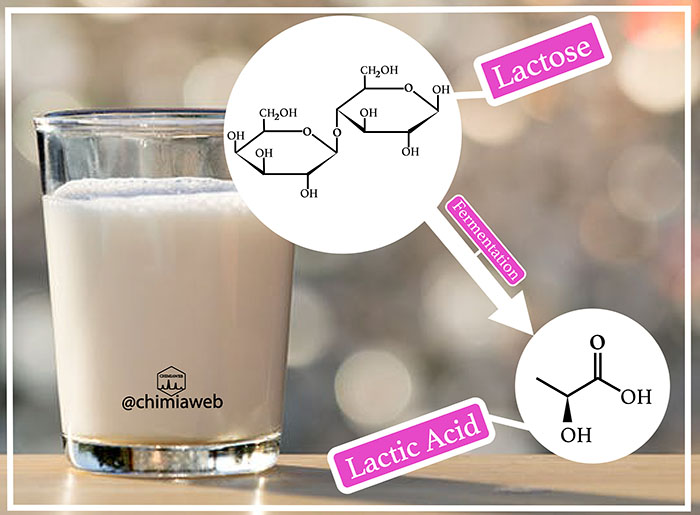Spoilage of milk is referred to as any unpleasant change or deterioration in taste, smell and texture of milk. This process results from bacterial contamination. Pasteurization of milk destroys harmful bacteria. Some species survive pasteurization. An overgrowth of these heat-resistant bacteria, or microbial contamination of milk from the environment, can lead to spoilage of milk.
Bacteria metabolize lactose for their growth. Lactose is the milk’s natural sugar, which acts as an energy-carrier in milk. It is a disaccharide, composed of one unit glucose plus one of galactose. When bacteria consume lactose, a chemical reaction occurs that transforms lactose to lactic acid. This chemical reaction is called fermentation.
Due to the production of lactic acid in milk, the pH level of the milk decreases from 6.6 to 4.5, which means the acidity of milk is increased. Thus, the present lactic acid gives the spoiled milk a sour taste and undesirable smell. Suitable storage conditions, especially temperature, play a key role in minimizing deterioration of milk quality.

